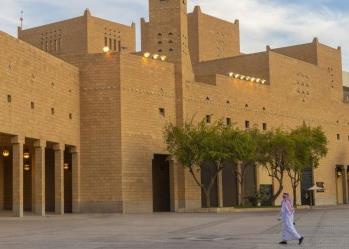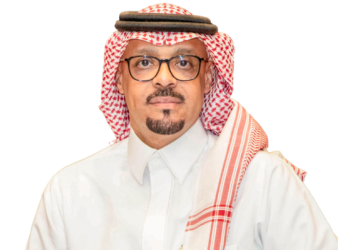
At some point in 2008, the Gulf Co-operation Council (GCC) will have to confront one of the toughest decisions of its 26-year history: whether or not to push ahead with its flagship project to introduce a single currency in the Gulf by 2010.
The man with the task of navigating the organisation through this key period in its history is GCC secretary general Abdulrahman bin Hamad al-Attiyah. In an exclusive interview with MEED, Al-Attiyah argues that monetary union would be a huge benefit to the region, but says its success depends on the political will of the member governments.
“The key elements for this project’s success depend on the diligence and care the countries of the GCC exert to remove all obstacles that might impair the success of creating monetary and economic union,” he says.
The five years Al-Attiyah has been in the top job have coincided with the most formative period in the GCC’s history. The career diplomat, who is also a Qatari Minister of State, has presided over the implementation of the customs union and is about to steer the group into a single market. But for most of the past year, he has had to steady the organisation during the tumult over currency union - undoubtedly the trickiest test to date of Al-Attiyah’s resolve.
If successful, the project will bind the six economies of the GCC more tightly together than ever before, creating a powerful economic bloc and a platform for continued growth. Failure would represent an embarrassing reversal for the organisation.
Over the past 12 months, the region’s economic boom has emerged as the greatest threat to the project. Rising inflation in the Gulf coupled with a falling dollar have made it difficult for member states to meet the convergence criteria needed to bring their economies into line. These fiscal pressures have in turn exposed policy differences between the six states that threaten the entire project. Oman has already withdrawn from the single currency, and Kuwait’s position is in doubt following its decision to depeg from the dollar.
However, signing up to a single currency is ultimately a political decision, and it is political issues, ranging from the location of the cur-rency’s central bank and control of monetary policy, to the economic goals of monetary union and even the name of the currency itself, that are likely to be the main sticking points.
The secretary general reels off a long list of reasons why the GCC states should enter into currency union. “Monetary and economic union will facilitate the process of conducting a direct comparison to costs and prices among GCC states,” he says. “This will enhance competition and promote economic efficiency. Moreover, it will create an orientation towards diversifying the region’s economics and eliminating the full dependency on the revenues of hydrocarbon products. Consistency and coherence will be boosted as a result.
“Also, it enhances the competency of GCC companies to conduct further mergers and acquisitions. This increases the efficiency of the regional economy and promotes competition as currency exchange rates will no longer be subject to fluctuation.”
The financial sector stands to gain most from currency union, says Al-Attiyah, although he points out that member states will need to reform the region’s financial sector regulation to meet the requirements of monetary union.
Pegged currencies
It sounds good in theory. After all, the GCC states share many economic similarities, deriving most of the revenues from oil sales and, with the exception of Kuwait, all having their currencies pegged to the dollar. However, putting currency union into action has proved far more problematic.
The differences exposed by the single currency project highlight the challenge for Al-Attiyah as he seeks to balance the growing external challenges with the internal dynamic of tightening economic integration.
With all the attention on the prospects for a single currency, the other issues on the GCC’s agenda, such as trade agreements and cross-border co-operation, appear to have fallen off the radar. But work has been going ahead behind the scenes.
“One of the main objectives of the GCC is to achieve co-ordination and integration between the member states in all fields, including co-ordinating policies and commercial relations with other states, and international and regional organisations,” says Al-Attiyah.
“GCC states have been seeking since the establishment of the council in 1981 to develop and enhance economic and commercial relations with a number of its partners by signing economic co-operation agreements that include holding negotiations to establish free trade zones between them and international economic blocs.”
International agreements
Six co-operation agreements have been signed so far, the first of which was with the EU. Similar agreements have been reached with China, India, Pakistan, Turkey and the South American Common Market (Mercosur Group).
“We [the GCC states] are also planning to hold talks with the Islamic Republic of Iran and South Korea to strengthen negotiation positions and competitive abilities in the global markets through joint [economic] agreements,” says Al-Attiyah.
Progress, however, has been slow, with free trade agreements (FTAs) with the main global economies still elusive. There have been very public cases of division. Bahrain and Oman have both broken ranks to sign bilateral FTAs with the US, despite the GCC’s stated policy of negotiating as a single trading bloc.
One key issue is that the GCC is not a symmetric, monolithic unit despite its economic parallels. It is dominated by the massive Saudi economy, supported by a population of 26 million that dwarfs the rest of the GCC’s combined population. “There is no doubt that GCC states are growing at different rates, which exerts real pressure on GCC decision-makers,” says Al-Attiyah.
Until now, the individual GCC states have proved reluctant to invest common institutions with significant power or authority. This raises further questions, such as whether the institutions are capable of adapting to wider change.
Al-Attiyah insists that the reforms seen across a swathe of GCC economies are having a material effect in keeping the regional economy in step with wider global trends.
“The free economy has enabled the GCC states to be open to the world,” he says. “They have spared no effort in attracting foreign capital, which helped corporations in both public and private sectors to develop experiences in different fields and adapt to change. Such experiences are not found in many Arab states.”
If the relationship between members is getting deeper, the GCC may also, one day, get broader. Yemen has formally applied for membership, potentially expanding the six-state body with one of the region’s largest populations.
“The GCC is strongly linked to neighbouring countries, a number of FTAs were signed with neighbouring countries and efforts are under way to achieve more steps in this domain,” says Al-Attiyah. “On Yemen in particular, bilateral co-operation will proceed on various tracks and according to a number of steps. The country will join a number of specialised organisations within the GCC in the domains of education, labour, health and sports.
Yemen has also made efforts to join organisations such as the Gulf Organisation for Industrial Consulting & Standards.”
Economic developmentThe GCC is also trying to support economic development in Yemen. The two sides have established a joint committee that meets to discuss means of supporting the economic development of the country over the next 10 years.
This followed a resolution from the higher council of the GCC at its 2005 summit in Abu Dhabi. As part of its commitment, the GCC patronised a donor conference in November 2006 in London, where states provided financial pledges of $5bn towards financing the investment programme of Yemen’s third socioeconomic development plan. GCC and regional funds pledged more than $3.7bn, or 74 per cent, of the net outlays agreed in London. Since then, GCC pledges of more than $2bn have been allocated to fund more than 50 investment projects and programmes across Yemen.
There has also been active co-operation between the Yemeni and GCC private sectors. A conference of investment opportunities was held in Yemen in April 2007. More than 500 businessmen from the GCC attended. Yemeni businessmen and their counterparts in the GCC signed a series of investments accords.
“There is no doubt that co-operation with Yemen and other neighbouring countries will bear fruit for the GCC since these countries are seen as an economic and strategic extension of the GCC,” says Al-Attiyah.
The real glue that will bind the GCC together is the cross-border economic projects that are taking off. The GCC electricity grid will link Kuwait with Oman and all points in between through a single system. A rail project and an emergency water network connecting the GCC states will also bring them closer together.
“Given the financial ability and the practical experience of the GCC state, which is capable of creating a suitable infrastructure that fits the economic state of its countries, the GCC countries are now seeking to adopt new complementary policies to build basic infrastructure, such as ports, airports, water desalination stations, power stations, roads and telecommunication,” says Al-Attiyah. “These projects will facilitate the trade exchange and enhance joint economic relations among GCC states.”
Currency union may be considered by many to be dead and buried for now. But after five years under Al-Attiyah, the GCC has never looked stronger as the physical ties that bind it become tighter.
Career
2002 Abdulrahman bin Hamad al-Attiyah is appointed secretary general of the GCC by the Supreme Council for three years, renewable once
1998 A career diplomat, Al-Attiyah spent many years in Qatar’s Foreign Affairs Ministry before becoming Minister of State for Qatar
1985 Posts include: Undersecretary of the Foreign Affairs Ministry from 1998-2002; Ambassador Extraordinary (non-resident) to Lebanon (1986-1992); and Ambassador Extraordinary to Italy (1985-1991)
1972 Receives a Bachelor’s Degree in Political Science & Geography from the University of Florida in Miami
You might also like...

Rainmaking in the world economy
19 April 2024

Oman receives Madha industrial city tender prices
19 April 2024

Neom seeks to raise funds in $1.3bn sukuk sale
19 April 2024

Saudi firm advances Neutral Zone real estate plans
19 April 2024
A MEED Subscription...
Subscribe or upgrade your current MEED.com package to support your strategic planning with the MENA region’s best source of business information. Proceed to our online shop below to find out more about the features in each package.








